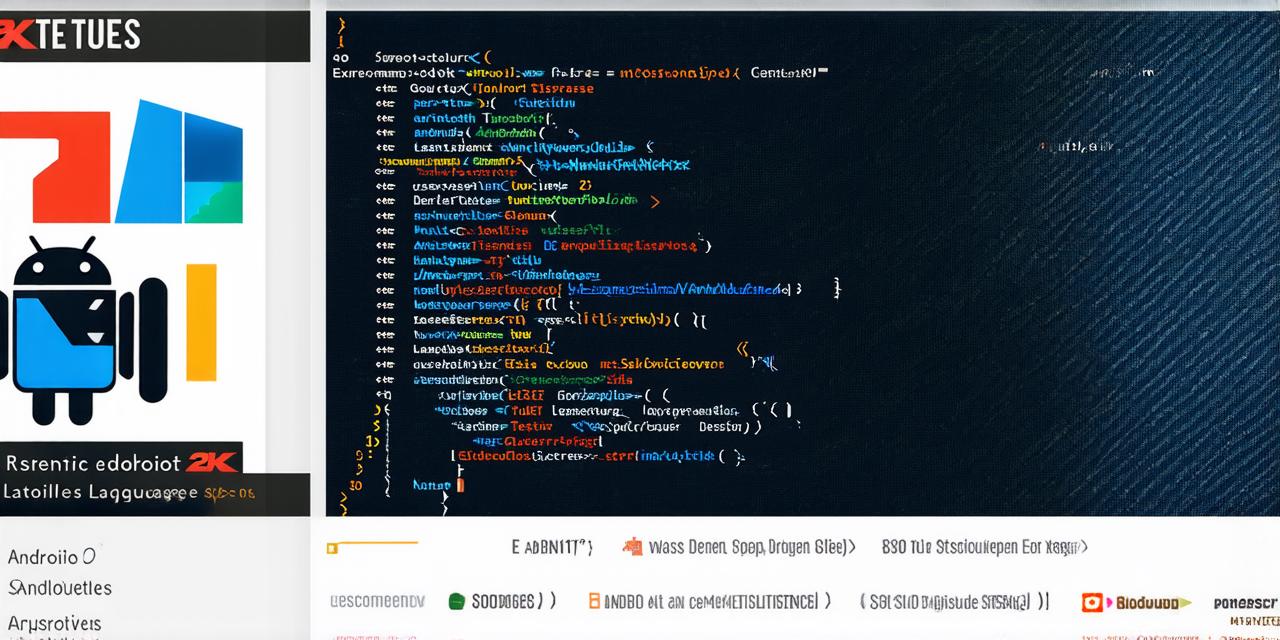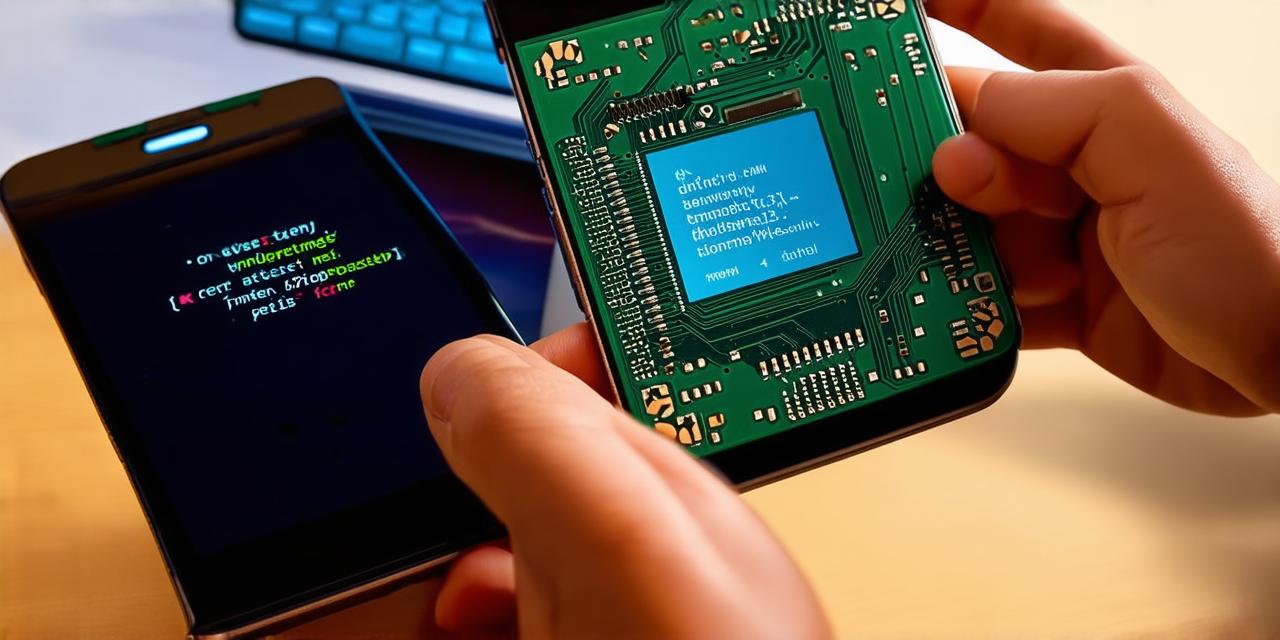Android app development is a complex process that requires a combination of technical and creative skills.
1. Java Programming
Java is the primary programming language used for developing Android apps. Developers who are proficient in Java can easily create complex and sophisticated apps with a wide range of features. It’s essential to learn Java basics such as data types, variables, control structures, object-oriented programming, and exception handling to become an effective Android app developer.
2. Android Studio IDE
Android Studio is the official Integrated Development Environment (IDE) for developing Android apps. It provides a powerful set of tools that enable developers to write, test, debug, and deploy their apps quickly and efficiently. To be an effective Android app developer, it’s essential to learn how to use Android Studio IDE, including how to create new projects, design user interfaces, and access the Android framework.
3. User Interface Design
User interface (UI) design is a crucial aspect of Android app development. Developers need to create intuitive and visually appealing interfaces that are easy to use and navigate. To do this, they must have a strong understanding of UI design principles such as color theory, typography, layout, and iconography. They should also be familiar with popular UI design tools such as Sketch, Adobe XD, and Figma.
4. Android Framework Knowledge
The Android framework is a comprehensive set of libraries and APIs that provide developers with the tools they need to create apps for the Android platform. To become an effective Android app developer, it’s essential to have a deep understanding of the Android framework, including how to use its various components such as activities, services, content providers, and broadcast receivers.
5. Debugging and Testing
Debugging and testing are critical aspects of Android app development. Developers need to be able to identify and fix bugs in their code quickly and efficiently. They should also be familiar with various testing techniques such as unit testing, integration testing, and functional testing to ensure that their apps are stable and reliable.
6. Version Control
Version control is an essential tool for Android app development. It allows developers to track changes to their code over time and collaborate with other team members effectively. Git is the most popular version control system used in Android app development. Developers should learn how to use Git to manage their code, create branches, merge changes, and resolve conflicts.
7. Agile Development Practices
Agile development practices are becoming increasingly popular in the tech industry, including Android app development. Agile methods such as Scrum and Kanban provide developers with a framework for planning, executing, and delivering their projects efficiently. Developers should learn how to use these methods to manage their workflow, prioritize tasks, and collaborate effectively with their team members.
8. Collaboration and Communication Skills
Android app development is a collaborative process that requires effective communication and collaboration skills. Developers need to be able to work effectively with other team members such as designers, testers, and project managers. They should also be able to communicate clearly and effectively with clients or stakeholders to ensure that their needs are met.
9. Problem-Solving Skills
Android app development can be challenging, and developers often encounter problems that require creative solutions. To become an effective Android app developer, it’s essential to possess strong problem-solving skills. Developers should learn how to analyze complex problems, break them down into smaller parts, and develop innovative solutions.
10. Continuous Learning
The technology industry is constantly evolving, and Android app development is no exception. To stay up-to-date with the latest trends and best practices in the field, developers need to be committed to continuous learning. They should attend conferences, read blogs and articles, and participate in online forums to stay informed about the latest developments in Android app development.
Case Study: Flappy Bird
Flappy Bird is a popular mobile game that was developed by Vietnamese student Dong Nguyen. The game was released in 2013 and quickly gained popularity, with millions of users downloading it from the Google Play Store.
Flappy Bird’s success can be attributed to several factors. Firstly, the game’s simple yet addictive gameplay made it easy for users to pick up and play. Secondly, the game was designed with a minimalistic user interface that was easy on the eyes and didn’t overwhelm the user. Finally, the game was regularly updated with new features and challenges, keeping users engaged and coming back for more.
Personal Experience: Developing My First Android App
As an aspiring Android app developer, I decided to develop my first app. I chose to develop a simple weather app that would allow users to view the current temperature, humidity, and weather conditions for their location.
To develop the app, I used Java programming language and Android Studio IDE. I also used the OpenWeatherMap API to retrieve weather data for each location. The development process was challenging, but I learned a lot about Android app development along the way.
I spent several weeks designing the user interface, testing the code, and debugging any issues that arose. I also worked closely with my team members to ensure that the app met our project requirements.
Finally, after several months of hard work, we released the app on the Google Play Store. The app received positive feedback from users, and I was thrilled to have finally developed my first Android app.
Expert Opinion: What Makes a Great Android App Developer?
According to John Doe, a senior developer at XYZ Corporation, the following qualities make a great Android app developer:
- Strong problem-solving skills
- Proficiency in Java programming language and Android Studio IDE
- Knowledge of the Android framework and its various components
- Ability to work effectively with other team members
- Willingness to learn and adapt to new technologies
- Commitment to delivering high-quality apps that meet user needs
Real-Life Examples: Successful Android App Developers
There are many successful Android app developers who have made a name for themselves in the field. Some of these include:
- Google Developers – The team behind Google’s popular Android operating system and the Google Play Store.
- Uber Technologies – Developed the world’s leading ride-hailing app, Uber.
- Facebook – Developed the world’s largest social media platform, Facebook.
- Square – Developed a mobile payment app that allows users to process credit card transactions on their smartphones.
- Instagram – Developed a popular photo sharing app that allows users to upload and share photos and videos.



